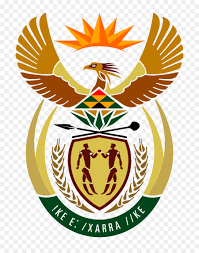Completion requirements
View

The Bill of Rights apply to all law and bind not only all state institutions, but also all natural and juristic people, including employers and employees. The rights that are protected include:
- The right to equality before the law. (Note: affirmative action legislation is allowed in order to promote equality.)
- The right to life.
- The right not to be detained without trial, and not to be punished in a cruel or degrading way.
- The right to control over one’s own body and the right to make decisions concerning reproduction.
- The right not to be subjected to slavery or forced labour.
- The right to privacy.
- The right to freedom of conscience and religion.
- Freedom of the press and academic freedom. (Note: but this must not extend to propaganda for war, advocacy of race hatred or incitement of violence.)
- The right to demonstrate and picket.
- The right to freedom of association.
- The right of citizens not to be deprived of citizenship.
- The right to a passport and the right to leave South Africa.
- The right to join trade unions or employer organisations and the right to bargain collectively.
- The right to strike. (Note: the compromise on the “right” of employers to lock out their workers was the inclusion of a clause at the end of the Constitution [section 241] which states that the Labour Relations Act 1995 [LRA], which makes lock-outs lawful, is not unconstitutional and cannot be amended or repealed by national legislation unless there has been consultation with national employer and employee organisation.)
- The right to a healthy environment.
- The right not to be arbitrarily deprived of property. (Note: the state has a duty, however, to take steps to achieve equitable land reform.)
- The right to adequate housing.
- The right not to be refused emergency medical treatment and the right to have access to health care services, sufficient food and water and social assistance.
- Children have the right to basic nutrition, shelter, basic health care and social services. They have a right not to be detained, except as a last resort, and then not to be held with people older than 18 years.
- The right to a basic education and the right to receive state education in the official language of one’s choice, where reasonably practicable. (Note: single medium – that is, one language only – schools are not necessarily unconstitutional, and the state must consider such schools, after having taken into account what is fair, practicable and the need to redress the results of past racially discriminatory law and practice. Independent – private – schools are protected by the Constitution as long as they do not discriminate on the basis of race.)
- The right to use your language of choice and to participate in cultural associations – as long as this is not in a manner inconsistent with any other of the rights.
- The right to any information held by the state and any information held by another person that is needed for the exercise or protection of any rights. (Note: the government may, however, pass laws which will limit the administrative and financial burden on the state.)
- The right to just administrative action, including, the right to be given written reasons where your rights have been adversely affected.
- The right to have a dispute resolved in a fair public hearing in court or by an impartial tribunal.
- The right to remain silent on arrest and be informed promptly of this right.
- The right, if detained, to have a lawyer to help you at state expense if substantial injustice would otherwise result. The right to adequate accommodation, nutrition, reading material and medical treatment in prison and the right of prisoners to be visited by their partners, next of kin, chosen religious counsellor and chosen doctor.
- The right to a fair trial, including the right of appeal or review to a higher court. Evidence obtained in a manner contrary to the Bill of Rights must be excluded if it results in an unfair trial.
- Rights may be limited only to the extent that the limitation is reasonable and justifiable in an open, democratic society based on dignity, equality and freedom [section 36].
- The most important thing about the rights are that they have a flip-side. For each right the individual has, he/she has the responsibility to honour the rights of their fellow humans.